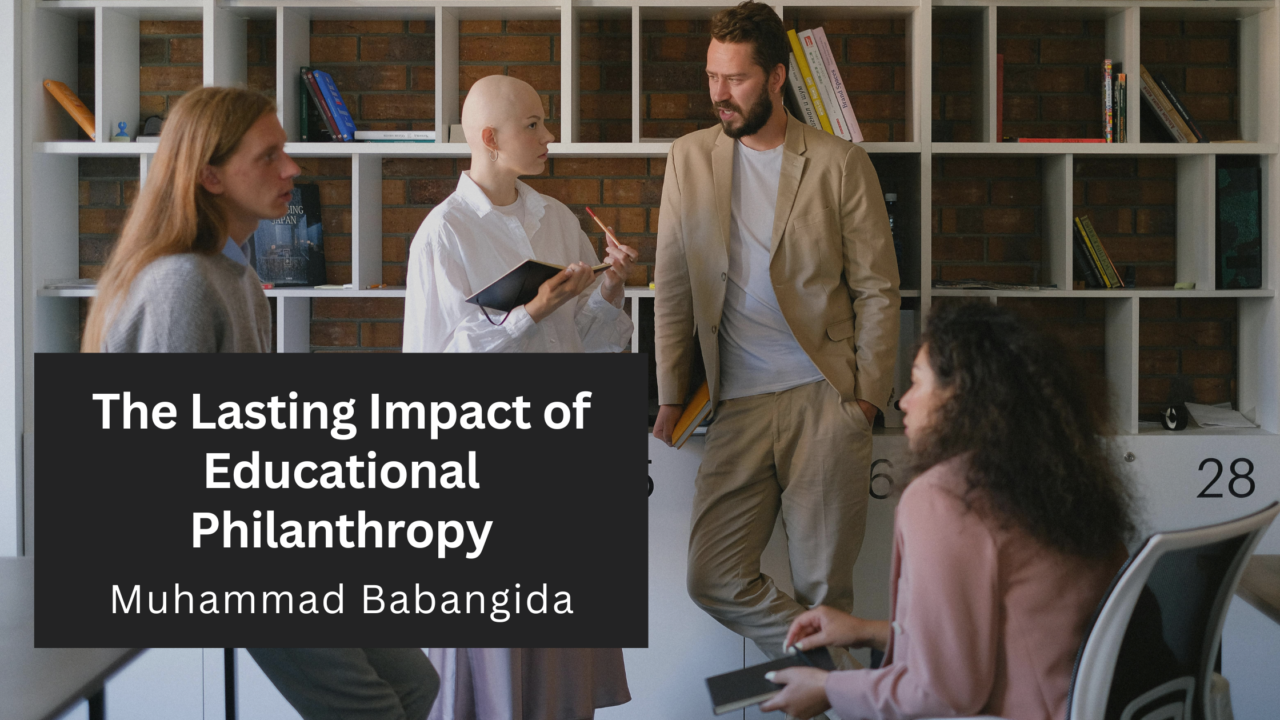Philanthropy in education has the power to change lives, communities, and even entire societies. While financial donations, grants, and scholarships may seem like small acts at first, they have long-lasting effects that extend far beyond the immediate recipients. Educational philanthropy opens doors to opportunity, providing students with the resources, mentorship, and access to learning that they otherwise might not have had. By supporting educational initiatives, philanthropists contribute to a cycle of growth, empowerment, and positive change that lasts for generations.
1. Expanding Access to Education
One of the most significant impacts of educational philanthropy is the expansion of access to education. Financial barriers prevent many talented students from pursuing their dreams, particularly those from low-income backgrounds. By funding scholarships and grants, philanthropists break down these barriers, giving students the opportunity to attend quality institutions and pursue their goals. This type of philanthropy allows students to focus on learning rather than worrying about how they will afford tuition, creating a more equitable educational landscape.
2. Supporting Teachers and Innovative Programs
Philanthropy also plays a crucial role in supporting educators and the development of innovative educational programs. Many philanthropists fund teacher training programs, professional development, and classroom resources that enhance the quality of education. Additionally, philanthropic investments often support cutting-edge educational initiatives, such as STEM programs, arts initiatives, and specialized curricula, helping schools adapt to the changing needs of society. These contributions enable educators to provide better learning experiences, foster creativity, and prepare students for the challenges of the modern world.
3. Strengthening Communities
Educational philanthropy has a ripple effect on entire communities. When students receive quality education, they are better equipped to contribute to their communities in meaningful ways. They become the leaders, innovators, and problem-solvers of tomorrow. By supporting education, philanthropists help build a well-educated workforce that drives economic growth, fosters social cohesion, and promotes civic engagement. Strong educational systems strengthen communities by providing individuals with the tools to succeed and positively impact those around them.
4. Promoting Social Mobility
One of the most profound long-term effects of educational philanthropy is the promotion of social mobility. Education provides individuals with the knowledge and skills needed to advance in life and break the cycle of poverty. By investing in education, philanthropists help lift individuals and families out of challenging circumstances, offering a path toward upward mobility. This impact can extend across generations, as educated individuals often go on to support and educate their own families, creating a lasting legacy of opportunity.
5. Building a More Inclusive Society
Philanthropic efforts in education also foster inclusivity and diversity. Many educational philanthropists focus on initiatives that promote gender equality, racial diversity, and accessibility for students with disabilities. By supporting these efforts, they help create a more inclusive learning environment where all students have an equal opportunity to succeed. This fosters a society where people from all walks of life can contribute to the greater good, enriching both the educational system and society as a whole.
Conclusion
The lasting impact of educational philanthropy extends far beyond the immediate benefits of scholarships and grants. By expanding access to education, supporting teachers, strengthening communities, promoting social mobility, and fostering inclusivity, philanthropists contribute to building a brighter future for individuals and societies. The investments made today in educational philanthropy will continue to pay dividends for generations to come, creating a more educated, empowered, and equitable world.
